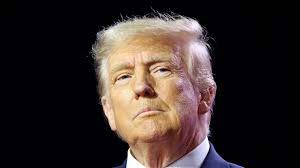Julian Zelizer
Former President Donald Trump pleaded not guilty to charges that he conspired to subvert the 2020 presidential election. Thursday’s arraignment was not Trump’s first courtroom rodeo; this year already he has been federally charged for his alleged mishandling of classified documents and charged in New York for his role in a hush-money payment to adult film actress Stormy Daniels during the 2016 presidential campaign. (Trump pleaded not guilty to all charges in those cases as well.)
The fact that Trump has been indicted again should not diminish the historic significance of this moment. Of all the indictments thus far, this is clearly the most consequential, with Trump facing four counts, including conspiring to defraud the government, to obstruct an official proceeding and to violate the most essential part of our democracy – the right of voters to choose their president. By refusing to accept the results of an election that was proven to be legitimate and actively trying to overturn the results, Trump put our democracy in grave danger. By seeking this indictment, as well as the one involving Trump’s handling of classified documents, the Department of Justice has broken with the precedent established by former President Gerald Ford when he preemptively pardoned former President Richard Nixon on September 8, 1974, for any crimes that he might have committed in Watergate. While Congress demanded accountability through the impeachment process, pressuring Nixon to resign, Ford passed on the opportunity to insist that no person – not even the former president – is above the law.
Ford issued the pardon in an effort to heal the nation from the trauma of Watergate. A lengthy legal trial would have dragged voters through all the ugliness of the scandal, and while accountability mattered, moving on was more important – or so Ford believed. “During this long period of delay and potential litigation,” Ford told the nation one month after Nixon resigned, “ugly passions would again be aroused. And our people would again be polarized in their opinions. And the credibility of our free institutions of government would again be challenged at home and abroad.” His decision proved to be much more controversial than he suspected. Many Americans were outraged that Ford had allowed Nixon to get off scot-free. Protests broke out all over the country, and Ford was continually greeted with hostile placards and chants, as his approval ratings plummeted. If he hoped that the country would become less polarized, he was wrong – the opposite ended up happening, with the fault lines dividing red and blue only becoming supercharged in the ensuing decades. Ford’s pardon – whether he intended to or not – sent a strong message that there were in fact limits to how far the federal government was willing to go to take action against a former president. The result was significant. Despite a series of congressional reforms aimed at restraining executive power in the first half of the 1970s, such as the War Powers Resolution of 1973 and the Congressional Budget and Impoundment Control Act of 1974, American politics ended up moving in the opposite direction, with presidents becoming increasingly powerful.
This became clear during the Iran Contra Scandal, when then-President Ronald Reagan’s national security team used funds from the sale of arms to Iran to assist anti-communist forces in Nicaragua, exploiting a loophole in a congressional ban on direct US funding. Former President George W. Bush also dramatically expanded the power of the national security apparatus after 9/11. As Garrett Graff wrote in a New York Times op-ed, “the precedent Ford set seems to have paralyzed a half-century of prosecutors. That precedent and the Justice Department policy have left the United States with what seems an untenable situation – presidents are immune from prosecution in office and politically untouchable after leaving office.” To be sure, there has been an increased willingness on Capitol Hill to deploy the power of impeachment against sitting presidents. But using the law remained off limits – until Trump tested that status quo. Special Counsel Jack Smith has now put forth a rebuttal to Ford’s monumental decision, making the case that prosecutorial action against a former president is a legitimate move.
While the bar must remain extraordinarily high for any administration to take legal action against a former president, it is a necessary response in the case of Trump’s attempt to overturn the 2020 election. When the alleged crimes are so egregious that they threaten the stability of our democracy, accountability is vital. The indictment is merely one step in a long-term process that is needed to reinstate the guardrails on presidential power that have been broken in recent decades, particularly by the previous administration. How voters will react to the charges and the outcome of the ensuing trial remains an open question. When 69% of Republicans and Republican-leaning independents believe Biden’s 2020 election win was not legitimate, Trump’s latest charges are unlikely to harm his standing, at least in the GOP primaries. In fact, it is very possible that Trump continues to benefit from the indictments since they play into the narrative he’s crafted of being a victim who is constantly fighting back against the establishment.
But the calculus for the decision to charge Trump shouldn’t rest on the former president’s political fate. Rather, we need to take a long-term view and consider how we can better hold presidents – present and former – accountable. By this standard, the impact of this week’s decision has the potential to be a turning point in US history, nearly 50 years after Ford pardoned Nixon.
CNN







